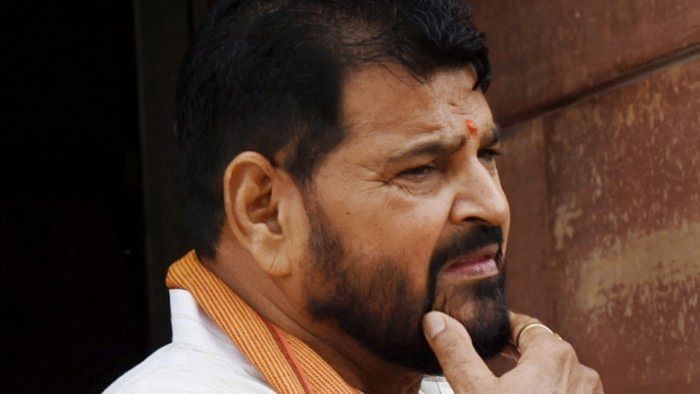
Six months after some top women wrestlers of the country accused the Wrestling Federation of India (WFI) president and BJP MP Brij Bhushan Saran Singh of sexual harassment and misconduct and about six weeks after two FIRs were filed, the Delhi police have filed a charge-sheet against him. It accuses him of sexual harassment, stalking and misconduct. The 1500-page charge-sheet names at least 22 witnesses, who have corroborated the charges by the six complainants.
The seventh complainant, a minor, withdrew her allegations. Taking the charges to this stage was no easy work. The women had to fight almost every day to have the system listen to them, though action against the accused should have been immediate. It was not just that they were not heard. They were abused, slandered and dragged on the street. The FIRs were filed only on intervention by the Supreme Court.
The filing of the chargesheet is only one step in a long process which is likely to be difficult and even predictable. The charges are framed under Sections 354, 354(A), 354(D) – assault or use of criminal force with intent to outrage a woman’s modesty, sexual harassment, and stalking.
The women deserve praise for persevering with their complaints against a powerful person and an unresponsive government. Support from the wider society strengthened them. They succeeded in pushing their cause to the extent where the government realised that it would stand to lose if it did not give way.
It cannot still be said that the system would work to support the cause and make it a success so that the struggle would have a happy ending for those who told the story and most of those who are watching it. It is the nation’s cause now. It can be proud of the women wrestlers because they persisted in their struggle despite all the odds against them.
One big setback to the cause was the failure in taking the POCSO case against Brij Bhushan Singh to its logical end. The police have recommended the cancellation of a complaint filed by the minor wrestler against him and the withdrawal of charges, citing “no corroborative evidence”.
The minor had given two statements, one before the police and the other before a magistrate, under Section 164 of the CrPC, accusing him of sexual harassment. Later, she withdrew the complaint. There are charges that she withdrew it under pressure, and they cannot be dismissed as unfounded. If the police had acted promptly on receipt of the complaint, as it should have done, this situation would not have arisen.